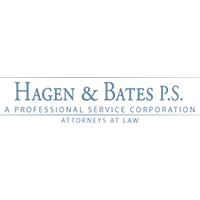 Oysterville Juvenile Law Lawyers, Washington
Oysterville Juvenile Law Lawyers, Washington
Sponsored Law Firm
-
 x
x

Click For More Info:
-
Russell & Hill, PLLC
1212 North Washington St. Suite 132 Spokane, WA 99201» view mapCriminal Defense Law Professional, Personal, Proven
You have questions, and we have answers. Here at Russell & Hill, PLLC, we know how to obtain the most favorable outcome for your particular circumstances.
800-928-5340
Not enough matches for Oysterville Juvenile Law lawyer.
Below are all Oysterville Criminal lawyers.
Sponsored Lawyers
1-2 of 2 matches
Criminal, Personal Injury, DUI-DWI, Business
Since the firm was established in 1993, the skilled attorneys at Hagen & Bates P.S. have provided versatile, professional and effective solutions to a variety of our clients’ legal challenges. With over 40 years of combined experience, we are always here to provide the support and assistance you require. For his professionalism and ethics, principal attorney Wayne D. Hagen, Jr. has earned a BV® Distinguished Peer Review Rating by Martindale-Hubbell®. The unique talents, backgrounds and skills our attorneys bring to our law firm apply well to various areas of the law. With our proven courtroom skills in state and federal jurisdictions, we are experienced litigators who are prepared to do the research and understand the nuances of your case. We also have the skill to handle complex transactions.
(more)Divorce & Family Law, DUI-DWI, Estate, Landlord-Tenant, Native People
Ron A. Soriano, Jr. is a seasoned attorney who has been practicing in Western Washington for almost a decade. He brings passion to the office and courtroom, representing clients seeking a lawyer they can trust to take their most important issues and represent them with integrity and reliability. Ron Soriano Jr. began his legal experience in California. After attending the University of California, Los Angeles (Bachelor of Arts, Political Science, June 2002), he went on to graduate Whittier Law School (Juris Doctorate 2005). He moved to the Pacific Northwest in 2010 where he has remained, being admitted to the Washington Bar (2010). He is a member of the Hispanic American Law Student Association, Vietnamese American Student Bar Association, Asian Bar Association of Washington, Filipino Lawyers of Washington and the Grays Harbor Bar Association, where he served as Treasurer (2013-2014). Ron incorporates his broad experiences to effectively relate with his clients he represents in criminal charges, all family law and domestic matters and immigration. Ron’s desire is to bring the best results to fathers, mothers, husband, wives, children, defendants, immigrants and businesses in our communities. Ron’s ease of relating brings a calm assurance to his clients as he represents their interests in Western Washington counties and area tribal courts. Ron is fluent in the Tagalog language and knowledgeable in basic American Sign Language.
(more)


 James Hill Spokane, WA
James Hill Spokane, WA Practice AreasExpertise
Practice AreasExpertise


